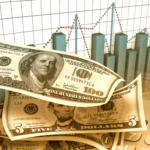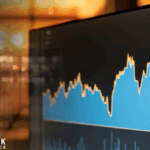In an effort to meet rising demands in the luxury market, Dutch biotech firm Qorium has attracted significant attention with its recent investment round. The company has successfully raised €22 million from various investors, including Invest-NL, LIOF, and contributions from high-net-worth individuals. This boost in funding is expected to enhance Qorium’s ability to scale its cultivated leather production, offering a sustainable alternative for traditional leather, which is often criticized for its environmental impact.
Qorium’s pathway toward commercial reality contrasts with earlier stages of development, where efforts were seen primarily as experimental. In previous years, the focus was more on perfecting the technique and establishing credibility in the realm of biotechnology for leather goods. Now, with a substantial financial injection and increased attention from the luxury market, the venture has shifted towards scaling and practical implementation into ready-to-market products.
How Will Qorium Scale Its Production?
By utilizing its recent funding, Qorium plans to transition from a laboratory setting to full-scale commercial production. The investment will facilitate the installation of new bioreactor systems at its Maastricht facility. Such advancements are critical in enabling the company to supply the luxury fashion industry sustainably. This move hopes to cater to high-end brands that are actively searching for ethical and better-quality alternatives to conventional leather derived from animals.
What Differentiates Qorium’s Leather?
Qorium distinguishes itself by creating authentic leather without traditional farming methods. By cultivating leather from animal cells, the company aims to minimize the environmental footprint associated with conventional leather production. These efforts are aimed at producing a product that is not only similar in texture and quality but also more sustainable. This methodology significantly reduces pollution and waste, aligning with increased global environmental consciousness.
Qorium’s approach results in leather that maintains the desirable attributes of flexibility and strength, yet eschews the ethical issues related to animal leather production. The company has forged partnerships to commercialize this innovation, where it envisages strong demand due to the luxury industry’s evolving standards.
Michael Newton, CEO of Qorium, describes the investment as a clear endorsement.
“This investment is a powerful vote of confidence in our mission to transform the leather industry.”
He further elaborates on the combination of science and craftsmanship.
“By combining cutting-edge science with deep leather expertise and sustainable practices, we are creating real leather that offers better performance than traditional animal-derived leather, without the environmental and ethical costs.”
Invest-NL has expressed its commitment to technologies that encourage system-wide changes in production industries. Lisette Kersting-van der Boog from Invest-NL remarks on the strategic alignment with Qorium. Her insights underline the importance and potential impact of Qorium’s endeavors on one of the most pollutive industries globally.
Qorium’s journey symbolizes the delicate balance between innovation and sustainability in material industries. The financial backing is set to fast-track the company towards influencing significant market segments. Given the likelihood of cultivated leather securing a firm place in the industry, consumers might anticipate an intriguing blend of traditional craftsmanship and modern biotechnology.










